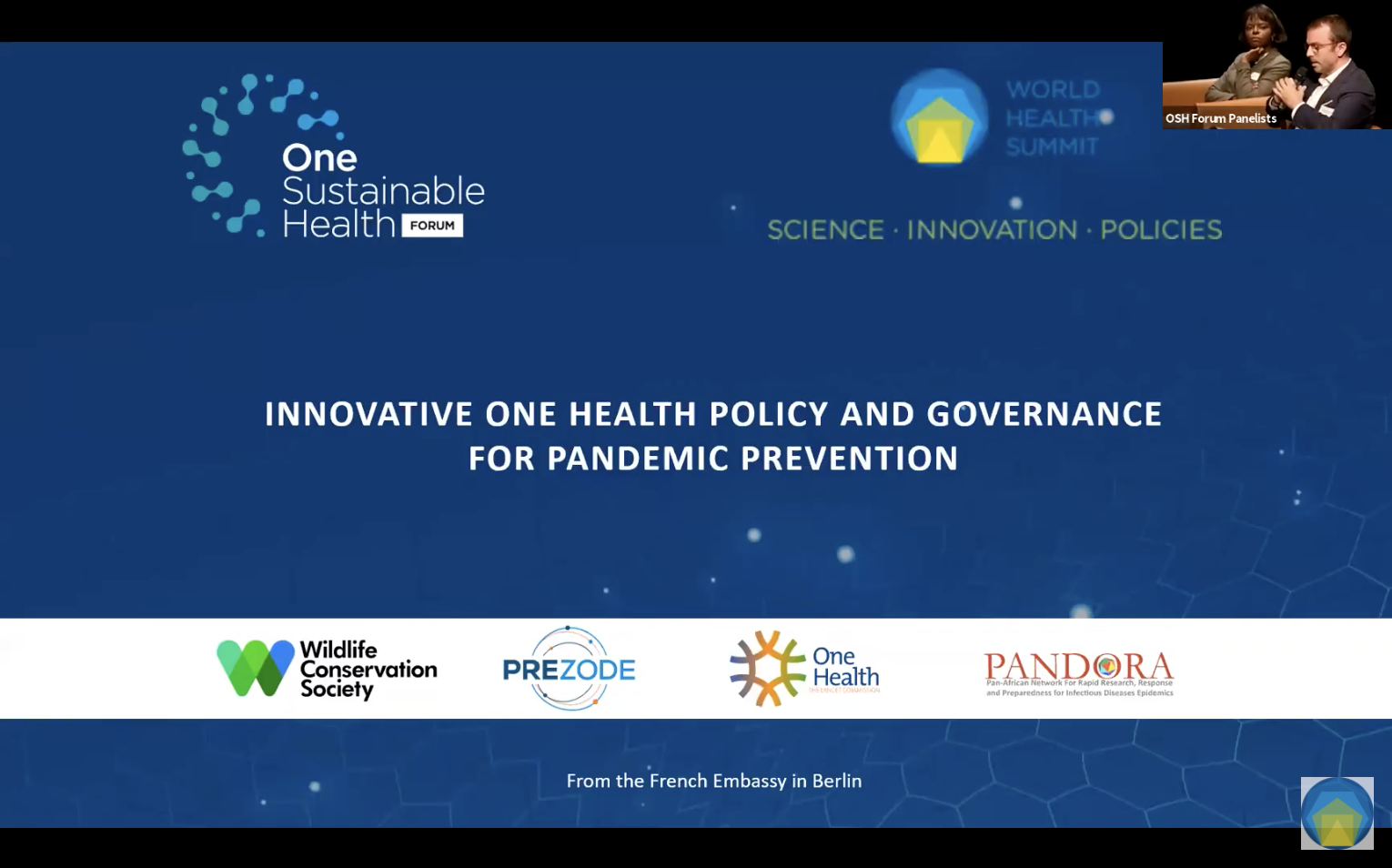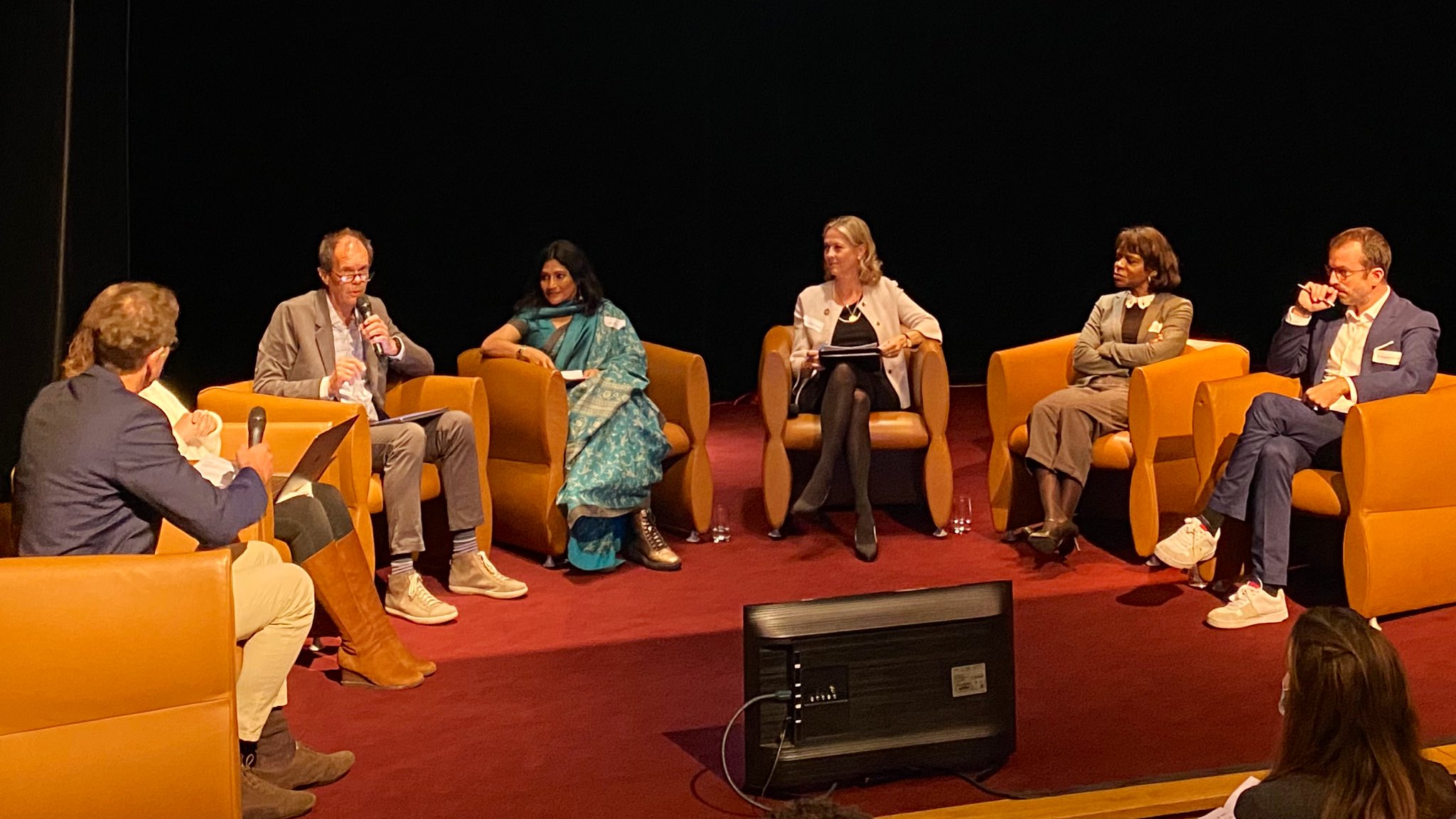World Health Summit
The World Health Summit (WHS) took place on 24-26 October 2021 in Berlin, Germany, with 300 speakers and 6000 participants (in person and virtually). Prof. Dr. Chris Walzer, WCS Executive Director of Health, presented at a session on 'Innovative One Health policy and governance for pandemic prevention' at the French Embassy in Berlin.
As the planet continues to face the multiple impacts of COVID-19 on human health, well-being and economies, it’s time for governments across the globe to take the necessary steps to help prevent future pandemics.
In October 2019, a mere two months before the COVID-19 pandemic ravaged the global economy and severely impacted our societies, the Wildlife Conservation Society (WCS) and the German Federal Foreign Office co-hosted a conference titled, “One Planet, One Health, One Future” which brought together members of academia, government, policy, and civil society from nearly 50 countries to forge the Berlin Principles on One Health, capturing the threat to society if we continue to ignore the interconnected issues relevant to human, animal and environmental health. More information is available here.
This year, several WHS sessions focused on One Health and diseases of zoonotic origin. Prof. Dr. Chris Walzer, WCS Executive Director of Health, presented at a session on 'Innovative One Health policy and governance for pandemic prevention' organsized by the One Sustainable Health for All foundation at the French Embassy in Berlin. Dr. Walzer highlighted that researchers repeatedly cautioned the global community of the massive health and economic impacts if a viral spill-over one day sparked a pandemic. He added: "if we had adopted a precautionary approach to hazards and coordinated in advance a global prevention and preparedness plan that bridged established sectoral silos, we would have greatly reduced the risks and impacts of a pandemic. Instead, due to the disconnect between science, economics and politics, we collectively failed".
To have a meaningful impact on significant reduction of the risk of future pandemics of zoonotic origin, all efforts must be made to prevent the pathogen spillover in the first place. This means, first, protecting intact ecosystems and stopping deforestation and environmental encroachment and conversion to limit the human-wildlife interface; second, strictly restricting legal and stopping illegal commercial wildlife markets and trade that facilitate spillover conditions.
Prof. Dr. Babette Simon, Professeur Associé at the Faculty of Health of the Université de Paris, stressed that: "intact, functional, and resilient ecosystems provide the foundation for life, for health, and for wellbeing for all of us on this planet".
Other speakers included: Ms. Anne-Marie Descotes - French Ambassador in Germany, Ms. Runa Khan - Friendship, Prof. Andrea Winkler - Lancet One Health Commission, Prof. Francine N'toumi - Pandora, Dr. Benjamin Roche - PREZODE, Ms. Cristina Romanlli - WHO, Mr. Benoit Miribel - OSH Forum, Ms. Stéphanie Seydoux - French Ambassador for Global Health.

 Prof. Dr. Chris Walzer, WCS Executive Director of Health, presenting at a WHS session.
Prof. Dr. Chris Walzer, WCS Executive Director of Health, presenting at a WHS session.